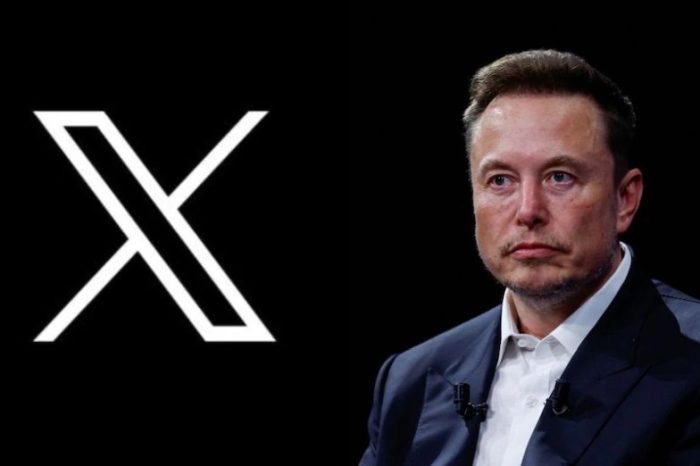Why Online Businesses Fail: Top 5 Mistakes to Avoid

Running an online business can be a rewarding venture, but it’s not without its distinct set of challenges. Sadly, a significant number of online businesses experience failure within their initial years of operation. Although various factors can lead to this, there are a handful of common mistakes that entrepreneurs can steer clear of to improve their prospects for success.
According to research by Marketing Signals, 9 out of 10 online stores close within the first four months, 20% of startups fail within the first year, and 70% don’t reach a decade, Fundera has found. These statistics show that a business idea alone, no matter how good, is not enough to succeed online. However, not everything is as complicated as it might seem.
“Businesses that are not yet online miss out on enormous opportunities. Approximately 2 billion people made online purchases last year; according to the U.S. Census Bureau, eCommerce accounts for around 15 percent of retail sales in the U.S. It’s not just about selling but also online visibility. A Google Global Retail Study shows that more than half of users search for and discover new brands online,” says Giedrius Zakaitis, Chief Product Officer at Hostinger. “Having an online presence is a necessity. And it’s never been easier to start a website, even for beginners with no technical skills. But getting a website is only the first step toward online success.”
In this piece, we’re going to dive deep into the five key factors that often contribute to the downfall of online businesses. We’ll provide some valuable insights on how to sidestep these expensive pitfalls, drawing from the extensive analysis conducted by web hosting experts at Hostinger. This study not only dissects the five most prevalent causes of online business failure but also sheds light on the errors that tend to be at the heart of these setbacks.
Lack of Confidence
“The internet is not for me,” “It’s too hard,” “I don’t know how” – it’s unlikely to conquer the internet with that attitude. In addition, it is often based on nothing more than misconceptions.
Building a website may seem complicated, but it’s actually much simpler than it sounds. There are quite a few web development tools that don’t require any coding knowledge, and artificial intelligence (AI) integration makes building and maintaining a website a breeze.
“Creating a website is no longer a challenge. Many people are surprised to learn that they’ve procrastinated for too long without reason. This lack of confidence can allow competitors to get ahead, making it more difficult to catch up and surpass them”, says Giedrius Zakaitis.
Poor Website Design
Mismatching colors, too much text, buttons everywhere, pixelated pictures, and other bad design elements may lead to high bounce rates. If hiring a professional web designer is too expensive, there are other ways to make a website attractive.
One solution is to entrust the job to AI. For example, Hostinger Website Builder is equipped with advanced AI technology that can generate a unique website in no time. This includes a one-of-a-kind design, layout, color scheme, and relevant content with ready-to-use images.
The website can be re-generated by refining the query. If nothing AI offers is suitable, there’s a selection of 150 pre-made designer templates to choose from.
“Having a website that matches your brand is essential for your business recognition. Selecting the right colors and adding logos and relative pictures may take some time, but it’s worth it,” says Giedrius.
Messy Website Navigation
Each website must have pages and sections that are relevant to its type. All these parts must be laid out and easily accessible. Otherwise, visitors can leave the site altogether if they struggle to find what they are looking for.
Giedrius Zakaitis states, “Two out of three clients choose to have an AI-generated, ready-to-publish website. The AI suggests the most commonly used sections needed for that type of site, but it is up to the client to decide what else might be important to visitors and should be added. In other words, each site is unique, fully functional, and can be adjusted to a personal liking.”
Limited or No Marketing
A website without visitors is not a business. Digital marketing is a costly but necessary investment, and it’s just money down the drain for those who don’t know the game. Search engine optimized (SEO) content might be the best way to start attracting the target audience with little effort.
Choose a website builder with an integrated AI-based plugin to generate SEO content and keep the site up-to-date. It’s also worth exploring the possibilities of Google Analytics, Google AdSense, or Facebook Pixel marketing integrations to track visitors and their behavior.
Slow Web Hosting
40% of visitors leave the website if it takes longer than three seconds to load. Website speed affects traffic, conversion rates, and even search engine ranking.
It’s not only the size and complexity of web page elements that can slow a website down but also hosting quality and server performance. A content delivery network (CDN) and caching (storing temporary copies) can significantly increase site performance and reduce server load.
Another important component is security: SSL certificates, a 99.9% uptime guarantee, and backups are some of the examples worth considering when choosing a web host.
“Speed, security, and scalability are the factors every business must consider when choosing a web hosting provider. As the business grows and expands, the hosting must adapt to its needs, so you can focus on what matters – your business development,” says Giedrius Zakaitis.
Offline businesses lose a huge opportunity. This is especially true for the retail sector: e-commerce is already big and continues to grow at an increasing rate. It is not necessarily about competing with the big brands; sometimes, it is enough to find a niche and establish yourself in it.
Creating a website for achieving online success isn’t as challenging as it might sound. While marketing tools are important for attracting visitors, it’s crucial to ensure that poor website design or confusing navigation won’t deter them.
All in all, choosing an all-in-one solution can facilitate an easy website launch, scaling, and security.
About Hostinger
Hostinger is one of the top 3 web hosting brands worldwide. With world-class products and a team of around 1,000 curious and high-spirited professionals, we help over two million clients in more than 150 countries achieve their online goals.
Hostinger has been ranked among the fastest-growing companies in Europe for four consecutive years in the Financial Times’ annual FT 1000 list. In 2022, Hostinger’s consolidated sales revenue increased by 64% year-over-year to €69.6 million.

